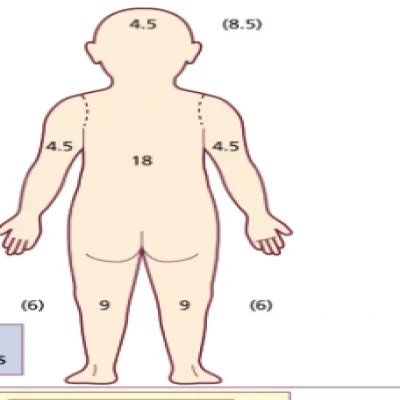مجلات علمية

gripa influenza or Grippe is an ancient term for something like the flu, a virus that causes a fever, sore throat, and headache. If you're worried about getting the grippe, you may stay a day at home drinking tea.
Once someone gets achy, shivery, and weary, they are most likely suffering from the grippe, which is very infectious and sickens a large number of individuals each year, primarily during the winter months. Today, it's more often referred to as the flu, which is an abbreviation for influenza. In the seventeenth century, English people termed it the grippe, from the French grippe, which means "influenza," and moreover "seizure," from gripper, "grab or hook
gripa influenza
Influenza is really a viral virus that affects your respiratory system, namely your nose, throat, and lungs. The flu is a popular expression for influenza, although isn't quite the same as stomach "flu" caused by viruses diarrhoea, and vomiting.
Most people recover from the flu on their own. However, influenza and its consequences might be fatal at times. The following people are at a higher risk of experiencing flu complications:
Young children below the age of five, particularly those under the age of six months
Adults above the age of 65
Care facility and other long-term care facility residents
Women who are pregnant or who have given birth within the last two weeks
People who have a compromised immune system
American Indians
People with chronic diseases. for example, heart disease, renal disease, liver disease, and diabetes People who are extremely obese, with a BMI of 40 or higher
Even if the yearly influenza vaccination isn't 100 percent effective, it's still your greatest line of defense against the virus.
Symptoms of gripa influenza
The flu may appear to be a typical cold at first, with a runny nose, sneezing, and sore throat. Colds, on the other hand, generally develop slowly, but the flu frequently appears quickly. And, although a cold might be annoying, the flu typically makes you feel much worse.
The following are common flu signs and symptoms
Fever
Muscle aches
Sweating and chills
Headache
Cough that is dry and persistent
Breathing difficulty
Weakness and exhaustion
a stuffy or runny nose
Throat discomfort
Pain in the eyes
- Vomiting and diarrhoea are more prevalent in children than in adults.
Causes of gripa influenza
When an infected person coughs, sneezes, or speaks, the virus spreads quickly in droplets. You can either directly inhale the droplets or get the germs from an item, including a computer or smartphone keys, and then transport them to your eyes, nose, or mouth.
People infected with the virus are usually infectious before symptoms begin five days after they develop. Children and others with compromised immune systems may remain infectious for a somewhat longer period of time
Influenza viruses are continuously evolving, with new strains emerging on a regular basis. If you've had influenza before, your body has already produced antibodies to combat that particular type of virus. If new influenza viruses are similar to ones you've met before, whether, through illness or vaccination, those antibodies may prevent or decrease the severity of infection. However, antibody levels may decrease with time
Furthermore, antibodies against previously encountered influenza viruses may still not shield you from new influenza strains, which may be completely different viruses from those you had previously
gripa influenza Risk
Factors that might raise your chances of getting the flu or having complications include:
Age. Swine flu mostly affects children aged 6 months to 5 years old, as well as people aged 65 and older.
Conditions of living or working. People living or working in institutions with a high density of inhabitants, such as nursing homes or army camps, are more prone to contract the flu. People who are hospitalized are also at a higher risk.
Immune system deficiency. Cancer therapies, anti-rejection medications, long-term steroid usage, organ transplant, blood cancer, or HIV/AIDS can all compromise the immune response. This can make it easier to get the flu and may also raise the likelihood of problems occurring.
Illnesses that persist. Chronic illnesses like asthmatic, diabetes, heart disease, brain and nerve diseases, metabolic abnormalities, and airway abnormality, as well as kidney, liver, or blood disease can all enhance the risk of infectious diseases problems.
Race. Native Americans may be at a higher risk of influenza complications.
Use of aspirin before the age of 19 If affected with influenza, those under the age of 19 who are taking long-term aspirin treatment are at risk for having Reye's syndrome.
Pregnancy. Pregnant women with a high risk of developing influenza complications, especially in the second and third trimesters. Up to two weeks after giving birth, women tend to have influenza-related problems.
Obesity. Persons with a BMI of 40 or above are at a greater risk of respiratory infections.
Complications
The flu is typically not dangerous if you are young and healthy. Although you may be uncomfortable while you have it, the flu typically passes in a week or two with no long-term consequences. However, infants and adults who are at high risk may have problems such as:
Pneumonia
Bronchitis
Flare-ups of asthma
Heart issues
Infections of the ears
Acute respiratory distress syndrome (ARDS)
Prevention
The Centers for Disease Control and Prevention (CDC) advises yearly flu vaccines for all people aged 6 months and above. The flu vaccination can reduce your risk of getting the flu and its severity, as well as your chances of being really ill from the flu and requiring to stay in the hospital.
This season, flu vaccination is extremely crucial because the flu and coronavirus disease 2019 (COVID-19) have identical symptoms. Flu vaccine may decrease symptoms that are similar to those incurred by COVID-19. Preventing the flu and decreasing the severity of flu sickness and hospitalizations may reduce the number of individuals who need to be hospitalized.
It's possible to get a COVID-19 vaccine at the same time you get your flu shot.
This year's cyclical flu vaccine protects against the four influenza viruses that were already expected to be the most prevalent during the flu season.
Some people should avoid using nasal spray, including:
Under 2-year-olds
Adults aged 50 and above
Women who are pregnant
Children aged 2 to 17 years who use aspirin or a salicylate-containing drug
People who have a compromised immune system
Children aged 2 to 4 years who have experienced asthma or wheeze in the previous 12 months
When should you see a doctor?
The majority of individuals who have the flu can treat themselves at home and seldom need to consult a doctor.
Consult your doctor straight away if you develop flu symptoms and are at risk of complications. Taking antiviral medications may shorten the duration of your sickness and help you avoid more serious complications.
If you experience flu-like symptoms, get medical attention immediately away. Adults may experience the following emergency signs and symptoms:
Breathing difficulties or shortness of breath
Chest ache
Constant dizziness
Seizures
Existing medical problems deteriorate
Severe ailment or muscle pain
Children's emergency signs and symptoms may include
Breathing difficulties
Lips that are blue
Chest ache
Dehydration
Muscle ache that is unbearable
Seizures
Existing medical problems deteriorate






